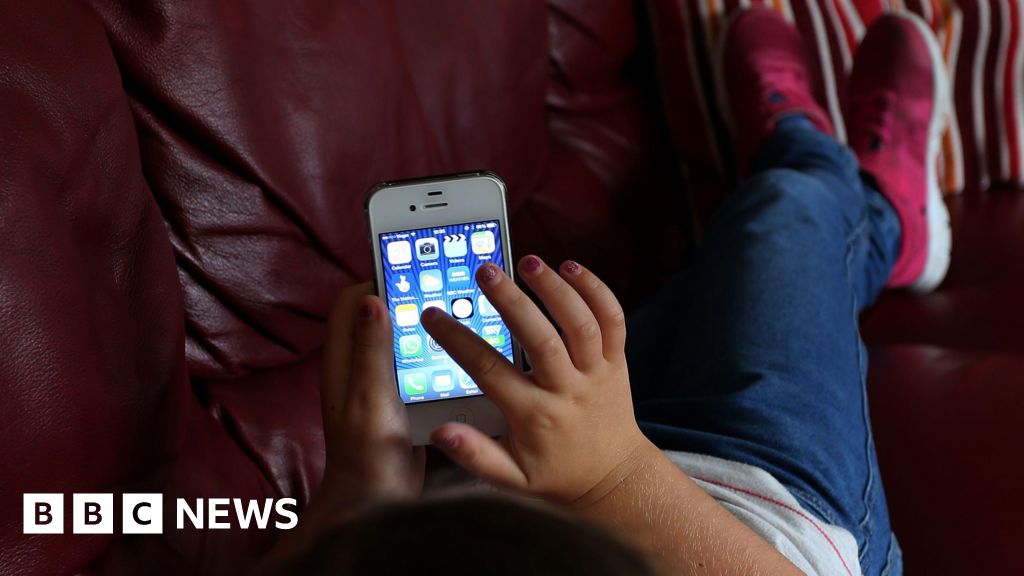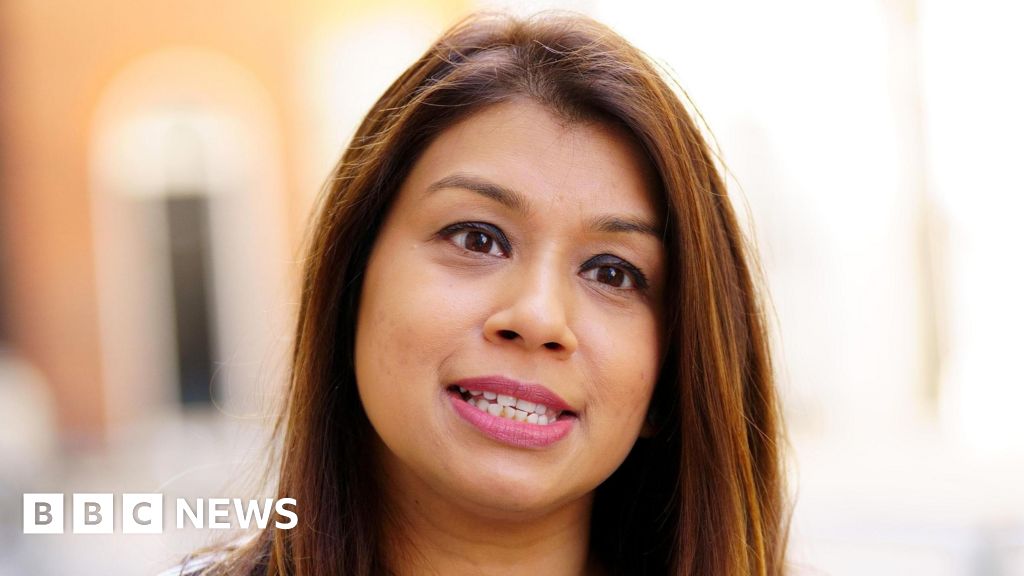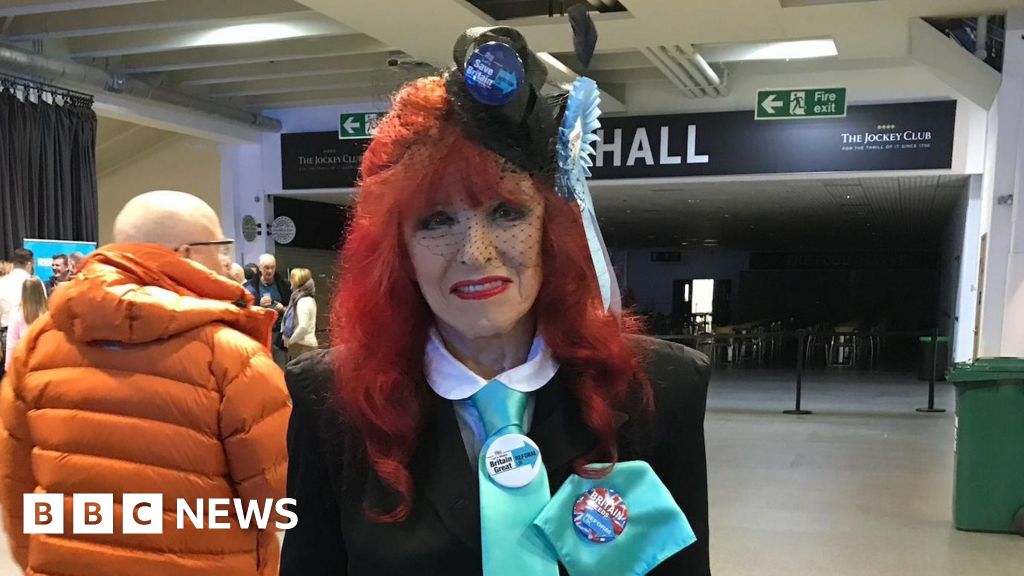ARTICLE AD BOX
By Justin Parkinson
Political reporter, BBC News
image source, Getty Images
image captionThe conference speech is a big moment for political leadersIt's conference season for the UK's main political parties. But why do they have them? And what is likely to happen?
What are conferences?
The party political conference is an opportunity for the membership and leaders to get together to discuss ideas, policies and personalities. It's not all work, though, as parties go on late into the night.
The biggest event at each conference is the leader's speech. Usually the event's finale, it helps set the tone for the party for the rest of the political year.
There are also debates and votes at most conferences, but not all.
Will all the conferences this year be virtual?
No. Last year, because of Covid, all events were held behind closed doors, with party members contributing and watching only online.
This year, the Liberal Democrats and SNP are sticking to that system, but the Conservatives are heading to Manchester and Labour will be in Brighton.
What's the point of conferences?
They provide a shop window, allowing parties to showcase policies, slogans and personalities to a national audience on TV, radio, online and in the press.
But the amount of change achievable at conferences - in terms of policies and direction - varies widely.
The Conservative Party no longer votes on policy at its annual conference, but there are speeches and round-table discussions involving top politicians.
The Lib Dems, by contrast, still set policy via delegate votes, while Labour also holds votes, which inform the leadership's policy decisions.
Here's what we can expect this year:
Liberal Democrats - 17 to 20 September
image source, PA Media
image captionThe Lib Dems want to capitalise on a great result in June's Chesham and Amersham by-electionExcept for a small, filmed gathering in East London's Canary Wharf, the party's members will listen and contribute online.
But, a year after beating Layla Moran to the leadership, Sir Ed Davey will want as much media exposure as possible.
The Lib Dems have scheduled his speech for the Sunday of conference - as opposed to the more conventional mid-week slot - in the hope of greater coverage on what is usually a "quiet" news day.
Although the Lib Dems haven't been riding high in the opinion polls lately, the party scored a notable by-election success in Chesham and Amersham in June, taking a previously solidly Tory seat.
This has buoyed spirits, with one party source telling the BBC the leadership would capitalise on the "bounce" and push to win in more seats in the south of England by wooing young professionals away from the Conservatives.
The main themes of this year's event will be climate change and education. Sir Ed is also expected to launch an attack on the government's recent decision to raise National Insurance to pay for personal care, deemed unfair on lower-paid working people by the Lib Dem leadership.
Conference motions cover issues including banning conversion therapy, reforming corporation tax, global carbon pricing and end-of-life care.
Labour - 25 to 29 September
image source, Reuters
image captionSir Keir Starmer's first speech as leader last year took place without a live audienceThe biggest spectacle beside the seaside will be Sir Keir Starmer's final-day speech. Because of Covid, this will be the first time the Labour leader has had a chance to address a full conference in person since he was elected in spring last year.
With the party enjoying something approaching parity with the Conservatives in recent opinion polls , after a poor few months, those around Sir Keir see it as a chance to impose his brand on the party - and the public. Might there be a few policy announcements along the way?
Labour left-wingers will be looking for signs that Sir Keir is willing to build bridges with them, after a fractious few months. Former leader Jeremy Corbyn - still suspended from the Parliamentary party - is expected to appear on the fringe, as is his close ally Len McCluskey, a vocal critic of Sir Keir's leadership.
Sir Keir is likely to get an easier ride when John Bercow - the former House of Commons Speaker and a one-time Tory MP who recently joined Labour - speaks.
Shadow chancellor Rachel Reeves's speech will be scrutinised for clues about the party's plans to build back from the damage the pandemic has done to the economy.
On the fringe meetings circuit, there will be discussions on, among other things, Labour and Englishness, ableism, the takeaway trade after Covid, nuclear disarmament, the future of GCSEs, and the practice of fire and rehire.
Conservatives - 3 to 6 October
image source, PA Media
image captionWill Boris Johnson give the Tory faithful enough to cheer about?Boris Johnson's party meets in Manchester, with a fresh line up of ministers in many key roles, following the PM's reshuffle.
At what tends to be the slickest of the big conferences, the Tories are making an extra effort to reassure the business world that all is well, despite the recent decision to raise taxes to help pay for social care.
Chancellor Rishi Sunak will speak on Monday, dubbed "Business Day", when industrialists and entrepreneurs will be wined and dined.
Amid unease over the National Insurance policy in some of the traditional Labour seats the Conservatives took in the 2019 election, there will be pressure to produce something to please MPs feeling a little more vulnerable as a result.
In his speech, the prime minister might put a little more flesh on the bones of his "levelling up" plans for the UK, which critics say lack detail so far.
Mr Johnson will also be keen to vaunt the success of the vaccines programme and, with the economy improving, project a sense of optimism.
But although he invariably gets a rapturous response in the hall, all eyes will also be on newly-promoted ministers, like Foreign Secretary Liz Truss and Culture Secretary Nadine Dorries, to see if they can wow the party faithful.
Scottish Greens - 7 to 9 October
The party made history in August when it entered government for the first time in a deal with the SNP at Holyrood. Now it is heading to Edinburgh for a face-to-face conference, with options to take part remotely.
Co-leaders Patrick Harvie and Lorna Slater are unlikely to be wasting too much time on celebrations, however, with the vital COP26 climate conference taking place in Glasgow two weeks later.
Green Party of England and Wales - 22 to 24 October
The Greens are in Birmingham for a face-to-face conference, but there will be options for members to take part remotely.
The party's co-leaders Sian Berry and Jonathan Bartley are both bowing out this year - so the event will see the debut speech of a new leadership team.
A leadership contest is set to conclude before the conference gets under way.
SNP - End of November
image source, Reuters
image captionNicola Sturgeon wants another referendum by the end of 2023The SNP is planning to hold its annual conference on the final weekend before St Andrews Day, on 26 to 29 November.
But the dates have yet to be confirmed. It is likely to be a virtual conference, although there are hopes it can be held in person, depending on Covid restrictions.
The party held a virtual get-together in September, where the big themes were climate change (ahead of COP26), next spring's Scottish council elections and the push for Scottish independence.
It took place amidst criticism from former leader Alex Salmond, who now heads the Alba Party, who said the independence movement is stuck in "Groundhog Day".
Nicola Sturgeon, who has been SNP leader and Scottish first minister for almost seven years, promised in her speech to keep pushing for a second independence referendum by the end of 2023. Governing in coalition with the Scottish Green Party, she has a majority at Holyrood in favour of this.
But she acknowledged "challenges", including, most importantly, the UK government's vehement opposition.
Read the BBC's Philip Sim's take on the SNP conference.

 3 years ago
105
3 years ago
105








 English (US) ·
English (US) ·